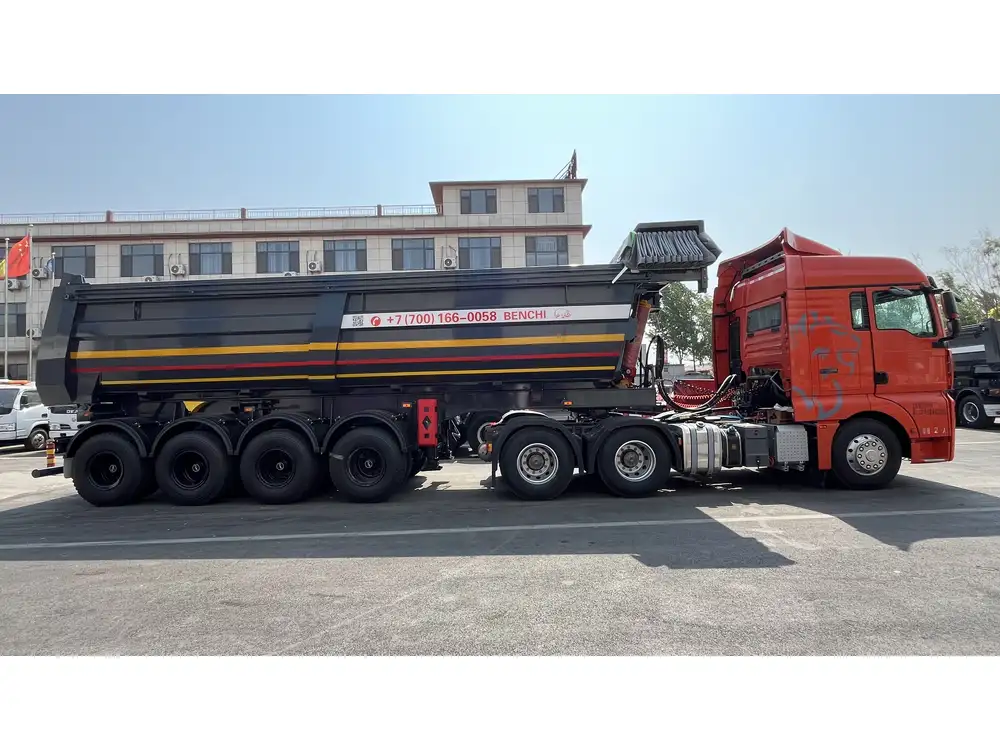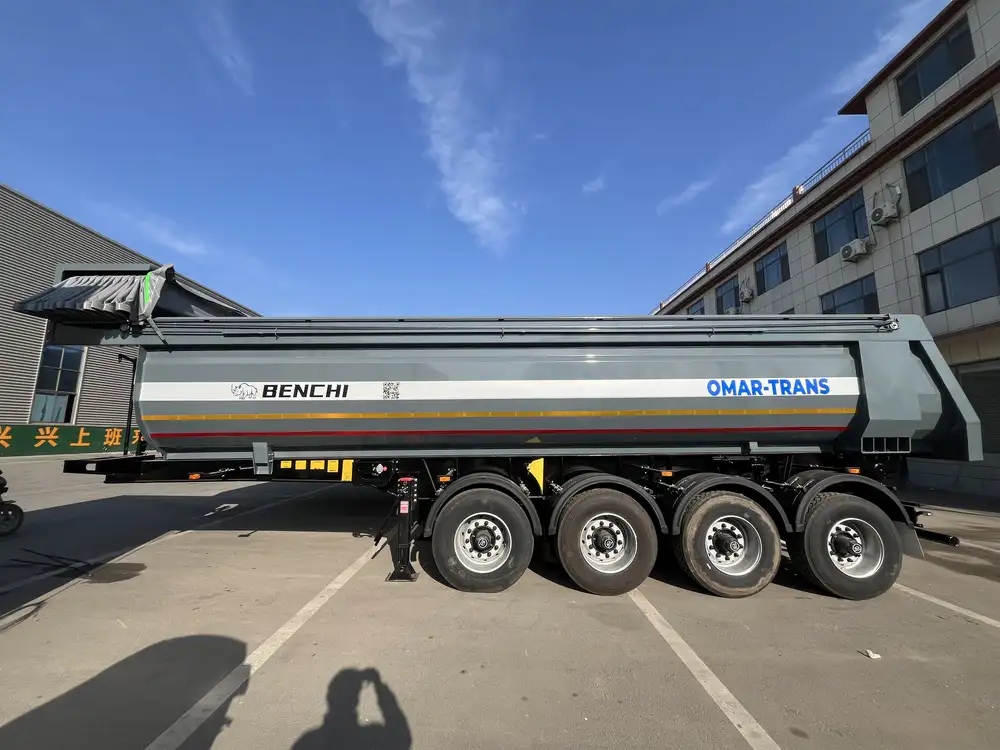Renting a dump trailer can be a strategic decision for both professionals and DIY enthusiasts. This guide delves deeply into the factors influencing the rental costs of dump trailers, the types available, the equipment needed, and considerations for optimizing your budget and project timeline.
What is a Dump Trailer?
Dump trailers are specialized trailers equipped with a hydraulic system that allows for quick unloading of materials. Ideal for transporting debris, construction materials, or landscaping soil, dump trailers simplify various tasks, making them extremely popular among contractors, landscapers, and homeowners alike.
Key Features of Dump Trailers
| Feature | Description |
|---|---|
| Capacity | Ranges from 5 to 20 tons, depending on the model. |
| Materials | Typically made of high-strength steel or aluminum. |
| Hydraulic System | Powers the dumping mechanism for efficient unloading. |
| Axles | Single or dual axle designs for enhanced stability. |
| Tires | Heavy-duty tires designed for rugged terrains. |

Average Costs to Rent a Dump Trailer
Renting a dump trailer can vary significantly based on several factors. While general price ranges can help guide your budgeting efforts, specifics will depend on location, rental duration, and individual rental companies.
General Pricing Structure
| Rental Duration | Estimated Cost per Day | Estimated Cost per Week |
|---|---|---|
| Daily | $50 – $150 | N/A |
| Weekly | N/A | $300 – $600 |
| Monthly | N/A | $1,000 – $2,500 |
Factors Influencing Rental Costs
- Location: Urban areas often have higher demand for dump trailers, resulting in increased rental rates compared to rural settings.
- Trailer Size and Capacity: Larger trailers with higher capacity naturally incur higher rental fees. It’s essential to select the right size for your project needs.
- Rental Company: Different companies offer varied pricing structures, including additional fees for delivery and pickup services.
- Rental Duration: Renting for longer periods typically reduces the daily rate.
- Seasonality: Depending on the season, demand might spike during peak construction and landscaping periods.
- Insurance and Damage Waivers: Many companies offer optional insurance for an added fee, which might be worth considering.

Example Cost Breakdown
To give you an idea of the potential costs involved, consider the following example for a mid-sized dump trailer (estimated capacity: 10 tons).
| Component | Estimated Price |
|---|---|
| Daily Rental Fee | $100 |
| Delivery Fee | $50 |
| Pickup Fee | $50 |
| Insurance (optional) | $15/day |
| Total Estimated First Day Cost | $215 |
| Rental for Three Days | $100 x 3 = $300 |
| Total Estimated Cost for Three Days | $515 |
What to Consider Before Renting a Dump Trailer
Understanding the intricacies of your rental choice can prevent unexpected expenses or project delays. Here are some vital points to consider:
1. Project Requirements
Determine the specific needs of your project:
- Volume of Material: Estimate how much debris or materials you’ll need to transport.
- Type of Materials: Ensure the trailer’s capacity aligns with the weight and type of items you’ll be moving.

2. Rental Agreements
Scrutinize your rental contract for hidden fees, restrictions, and conditions:
- Duration Clause: Be aware of daily vs. weekly rates.
- Insurance Policies: Clarify coverage and potential liabilities.
3. Maintenance and Condition
Inspect the trailer thoroughly before renting:
- Condition: Look for signs of wear and tear that could affect performance.
- Safety Features: Ensure the trailer has functioning brakes, lights, and a reliable hydraulic system.
4. Return Policies
Understand the return requirements to avoid penalties:
- Timeliness: Late returns might incur extra charges.
- Cleanliness: Some rental companies charge cleaning fees for trailers returned dirty.

5. Delivery and Pickup
Consider logistics:
- Delivery Options: Some companies may charge for delivery; others may include it.
- Self-Pickup: If you have a vehicle capable of towing the trailer, this could save you costs.
Frequently Asked Questions About Dump Trailer Rentals
1. How do I choose the right dump trailer size?
Choosing the right size involves assessing the scale of your project. For general home improvement tasks, a 5 to 10-ton trailer is often sufficient. For larger construction projects, consider trailers that can hold more.

2. What types of materials can I load in a dump trailer?
Dump trailers can handle a variety of materials including construction debris, soil, gravel, waste from renovations, and landscaping materials. However, check with your rental company about any restrictions, especially hazardous materials.
3. Do I need a special license to operate a dump trailer?
In most cases, as long as you have a valid driver’s license and your vehicle is compatible with towing, you should be able to rent and operate a dump trailer.
4. Is rental insurance worth it?
While rental insurance adds to your overall cost, it can prove invaluable in covering potential damages or accidents, providing peace of mind during your project.

5. Can I rent a dump trailer for just a few hours?
Rental policies vary by company; some may offer hourly rates, while others have daily minimums. It’s best to contact rental companies directly to inquire about specific terms.
Conclusion
Renting a dump trailer is a practical solution for a wide array of projects, ranging from home renovations to large construction efforts. By understanding the various factors that influence rental costs, along with essential considerations for selecting the right trailer, you can enhance your ability to budget effectively and make informed decisions.
Whether you choose to rent for a day, week, or month, being well-informed about the equipment and its costs will lead to a smoother rental experience. Be diligent in reviewing rental agreements and ask questions to ensure that you have a clear understanding of the terms involved.
Remember, the right choice in renting a dump trailer could not only save you time and effort but also help you efficiently manage and complete your project within budget. Happy renting!



